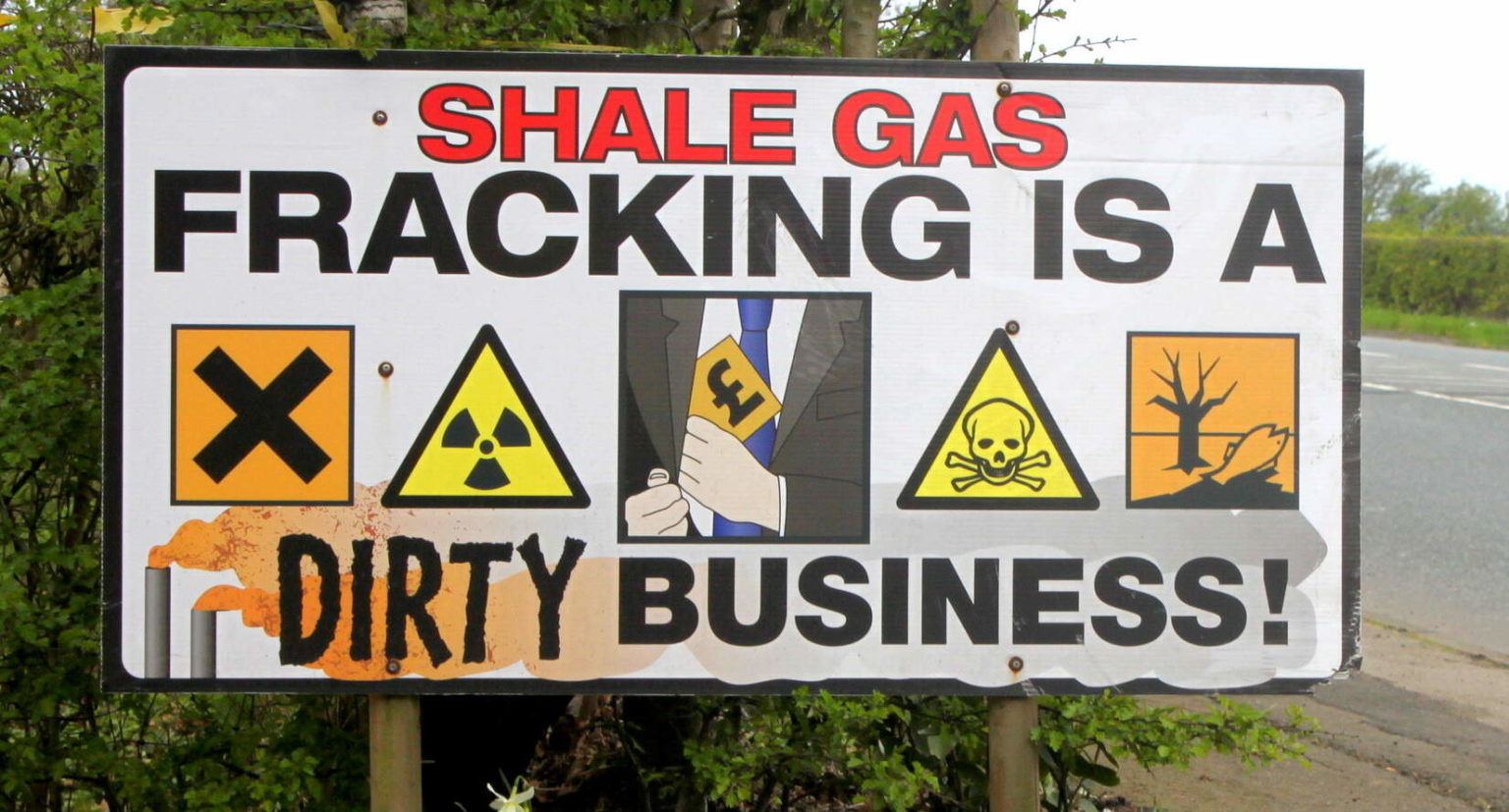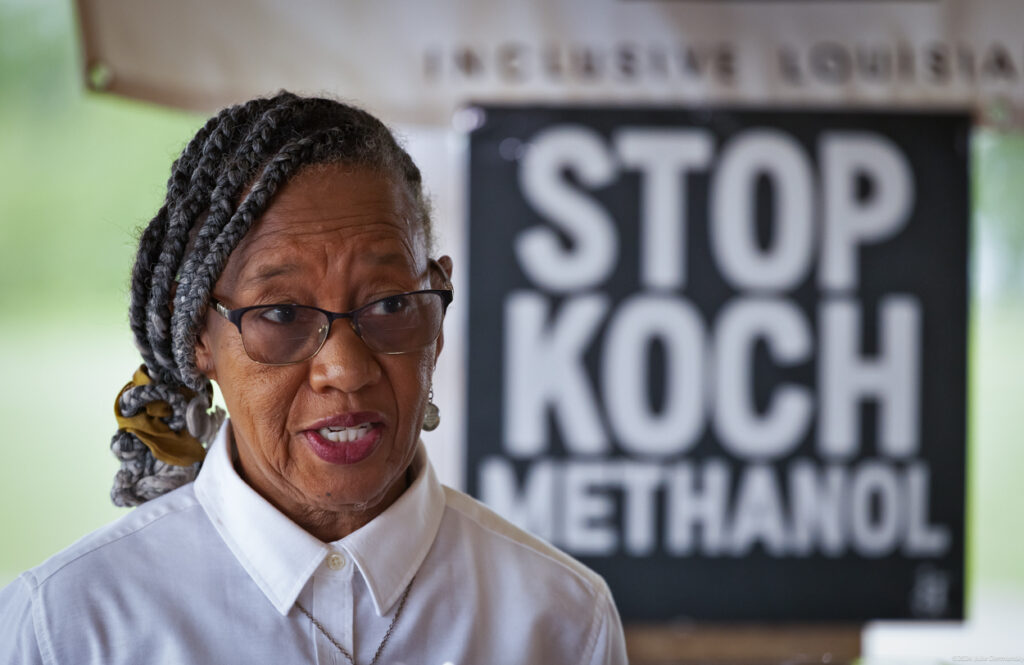By Ruth Hayhurst for Drill or Drop
After seven years of promoting fracking, Conservative ministers have withdrawn their support and blocked the prospects of a shale gas industry.
The UK government has issued an immediate moratorium in England because of the risk of earth tremors. Governments in Scotland, Wales and Northern Ireland have already issued measures that amount to moratoriums on fracking.
In a statement released just after midnight, the Department of Business, Energy and Industrial Strategy (BEIS), said new scientific advice concluded that it was not possible with current technology to predict accurately whether fracking would cause tremors and how big they would be.
Opponents of fracking described the announcement as a victory for communities and the climate but called for a full, permanent ban. IGas, the only industry representative to respond to our invitation to comment, said it was confident it could operate safely and environmentally responsibly. The industry organisation, UKOOG, later said fracking was a long-standing technology and the UK had a world-class shale resource.
Government reaction
Ministers said they had based their decision on a report by the industry regulator, the Oil and Gas Authority (OGA). It had been investigating earth tremors caused by fracking at the UK’s only shale gas site, at Preston New Road, near Blackpool, operated by Cuadrilla.
The report looked at the impacts of fracking the PNR1z well in autumn 2018, which caused more than 50 tremors. The OGA is also examining 134 seismic events caused by fracking the second well, PNR2, in August 2019. They included the UK’s largest fracking-induced tremor, measuring 2.9ML. The British Geological Survey said this tremor was felt by several thousand people, while several hundred reported damage to homes. The OGA suspended fracking within hours.
Read our special series – Frack Off: Meet the Campaigners Protecting Lancashire from Fracking
The BEIS statement said:
“On the basis of the disturbance caused to residents living near Cuadrilla’s Preston New Road site in Lancashire and this latest scientific analysis, the Government has announced a moratorium on fracking until compelling new evidence is provided.
“Fracking will now be paused unless and until further evidence is provided that it can be carried out safely here.”
Conservative governments have supported shale gas as a new domestic energy source since 2012. They argued that it could benefit the economy and UK energy security. They also made the case, much contested by opponents of fracking, that shale gas would be a bridge fuel to a low carbon future.
The business and energy secretary, Andrea Leadsom, said today:
“Whilst acknowledging the huge potential of UK shale gas to provide a bridge to a zero carbon future, I’ve also always been clear that shale gas exploration in the UK must be carried out safely. In the UK, we have been led by the best available scientific evidence, and closely regulated by the Oil & Gas Authority, one of the best regulators in the world.
“After reviewing the OGA’s report into recent seismic activity at Preston New Road, it is clear that we cannot rule out future unacceptable impacts on the local community.
“For this reason, I have concluded that we should put a moratorium on fracking in England with immediate effect.”
The director of regulation at the Oil & Gas Authority Director of Regulation Tom Wheeler said:
“Since the OGA suspended hydraulic fracturing at Preston New Road we have been considering whether the operator’s plans are still appropriate to manage the risk of induced seismicity. The OGA’s considerations have been informed both by the seismic events and by independent scientific analysis of data from the first Preston New Road well.
“Based on these, the OGA believes that further detailed geomechanical analysis would be needed before we could evaluate with confidence whether hydraulic fracturing could resume in the Fylde, or elsewhere, consistent with the Government’s policy aims.”
Notes following the statement added:
“While future applications for Hydraulic Fracturing Consent will be considered on their own merits by the Secretary of State, in accordance with the law, the shale gas industry should take the government’s position into account when considering new developments.
“The OGA has advised the government that until further studies can provide clarity, they will not be able to say with confidence that further hydraulic fracturing would meet the government’s policy aims of ensuring it is safe, sustainable and of minimal disturbance to those living and working nearby.”
Definitions
The government also confirmed that it had shelved proposed changes to the English planning system to fast track fracking. These measures included treating non-fracking shale gas sites as permitted development, bypassing the need for a planning application, and classing major shale gas production as Nationally Significant Infrastructure, which would take decisions out of local authority control.
Both proposals were very controversial and prompted a nationwide-campaign. They also attracted cross-party opposition and the government was warned it might not have the votes if it tried to push them through parliament.
A consultation ended more than a year ago and until today, there had been no news on the government’s response to public views. Today ministers said:
“These proposals … will not be implemented now.”
Like what you’re reading? Become a DeSmog patron today!
The statement, while welcomed by campaign groups, potentially raises many questions because it does not define fracking.
The 2015 Infrastructure Act introduced a new definition, based on volume of fluid. To be classed as associated hydraulic fracturing, the operation must use 1,000m3 of fluid per frack stage or 10,000m3 per well.
If the moratorium applied only to associated hydraulic fracturing, it would not cover oil and gas operations using smaller volumes of fluid.
Analysis by Professor Stuart Haszeldine of more than 17,000 gas wells fracked in the US from 2000-2010 concluded that 43% would not be defined as fracking under UK rules. Of 4,500 US fracked oil wells, 89% would not be covered by the Infrastructure Act definition.
The moratorium would also not apply to the use of dilute acid to open fractures, which is also opposed by communities and environmentalists.
A definition of fracking based on fracturing rocks, rather than volume, has been proposed by local authorities in North Yorkshire and is currently being considered by a planning inspector. The shale gas industry threatened legal action if this wider definition were adopted and the government warned councils in a written ministerial statement in 2018 to recognise the Infrastructure Act definition
Some campaigners have also called for the moratorium to be extended to fracking-related operations, such as flow testing, currently underway at Preston New Road.
Moratorium, not a ban
Opponents of fracking have called for a full and permanent ban. They have pointed to an earlier one-year moratorium, lifted in 2012. There are also questions about what would amount to “compelling evidence” needed to resume fracking.
Some interpreted the announcement as an electoral tactic. Previous polling by the Conservative Environment Network indicated that support for fracking could cost the Conservatives marginal seats at an election. Before today, the Conservatives were the only large party to support fracking.
Today’s decision puts in doubt the future of exploration licences issued under the 14th round in 2015.
Most of the 93 licences, known as PEDLs, were issued to develop shale gas. Without the opportunity to frack, these licences are unlikely to be worth pursuing.
The value of other older shale gas licences, including Cuadrilla’s PEDLs in Lancashire, now also look uncertain.
Last year, Ineos and Reach Coal Seam Gas brought a legal action against the Scottish government over its preferred policy position against fracking. The companies lost their case because the judge ruled that the Scottish government had not finalised its policy and it did not amount to a legally enforceable prohibition.
Shale gas companies in England could now be looking at their scope for legal action against the UK government over the cost of the licences, finding sites, and applying for planning permission.
There are also questions over the what happens to applications for fracking at Altcar Moss in Lancashire and shale gas exploration at Woodsetts in south Yorkshire, which are currently in the planning system.
The fracking industry has argued recently that the UK should use domestic sources of shale gas to eliminate the carbon footprint of transporting imported supplies.
Today’s statement from BEIS said the government still aimed to maintain diverse supplies of gas while the UK renewable sector grew. But it said the gas would need to come from sources other than UK shale gas.
The energy minister, Kwasi Kwarteng, said:
“The Committee on Climate Change’s advice is clear that natural gas will continue to have a key role to play as we eliminate our contribution to climate change by 2050, including for the production of hydrogen.
“However, following our action today, that gas will need to come from sources other than domestic fracking.
“Today’s decision will not in any way impact our energy supply. The UK benefits from one of the most active gas markets in the world, with security ensured through diverse sources – including domestic offshore production, pipelines from Europe and liquid natural gas terminals.”
Subscribe to our newsletter
Stay up to date with DeSmog news and alerts






